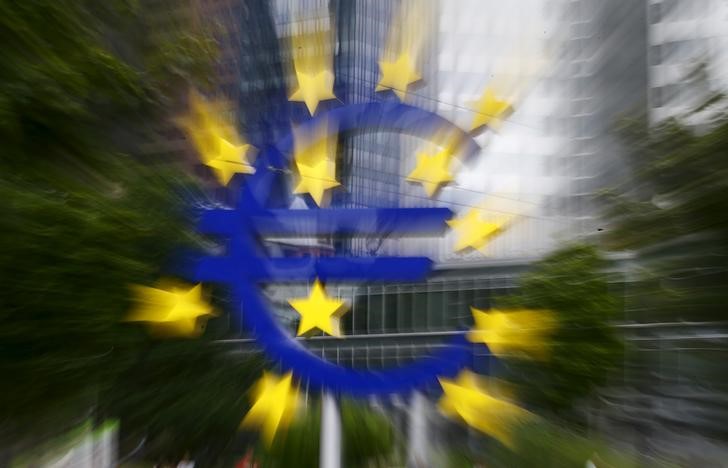Investing.com - Economic activity in the euro zone rose to a three-month high in March, but deflationary pressures continued, underlining concerns over the health of the region's economy, preliminary data showed on Tuesday.
In a report, market research group Markit said that its Flash Euro Zone Composite Output Index, which measures the combined output of both the manufacturing and service sectors rose from 53.0 in February to 53.7 in March, above forecasts for 53.0.
The flash services purchasing managers’ index improved to 54.0 this month from 53.3 in February, beating expectations for a reading of 53.3.
The preliminary euro zone manufacturing purchasing managers’ index inched up to a seasonally adjusted 51.4 this month from a final reading of 51.2 in February. Analysts had expected the index to rise to 51.3 in March.
On the index, a reading above 50.0 indicates industry expansion, below indicates contraction.
The upturn in March was led by services, where business activity growth revived from February’s 13-month nadir to reach a three-month high, aided by a marginal uplift in new business growth.
Manufacturing once again lagged behind services, but also saw growth of output and new orders accelerate slightly, improving on the 12-and ten-month respective lows seen in February.
Prices meanwhile continued to fall. Average input costs dropped slightly for a third successive month, helping drive down average prices charged by firms for their goods and services at the second-fastest rate seen for just over a year.
Commenting on the report, Chris Williamson, Chief Economist at Markit said, “The euro zone saw renewed signs of life at the start of spring. The March PMI showed a welcome end to the worrying slowdown trend seen in the first two months of the year, putting the region on course for a 0.3% expansion of GDP in the first quarter.”
“Plenty of worrying signs persist, however, to take the shine off the rise in the headline PMI. Deflationary pressures also remain stubbornly widespread as a lack of demand led to further discounting in March,” he added.
EUR/USD was at 1.1200 from around 1.1195 ahead of the release of the data, while EUR/GBP was at 0.7848 from 0.7850 earlier.
Meanwhile, European stock markets were lower. The EURO STOXX 50 fell 1.1%, Germany's DAX dropped 1.2%, France’s CAC 40 slumped 1.15%, while London’s FTSE 100 dipped 0.75%.
